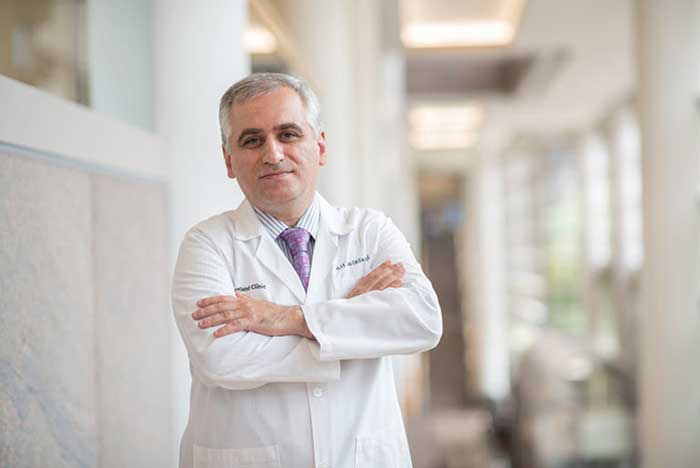
On the eve of World Obesity Day, a beacon of hope emerges for those battling obesity and type 2 diabetes.
A groundbreaking study, featuring Cleveland Clinic among its four contributing centers, unveils the long-lasting benefits of weight-loss surgeries like gastric bypass and gastric sleeve on controlling diabetes and managing body weight.
Ali Aminian, MD, Director of Cleveland Clinic’s Metabolic and Bariatric Institute and co-author of the study, shares insights into the complex interplay between obesity and diabetes.
“When we treat obesity effectively, associated conditions such as diabetes, as well as high cholesterol and high blood pressure, are likely to improve too,” Dr. Aminian explains.
The study, part of the Alliance of Randomized Trials of Medicine vs Metabolic Surgery in Type 2 Diabetes (ARMMS-T2D), delved into the sustained impact of bariatric surgery on diabetes management, with patient data accumulated over a span of up to 12 years.
Dr. Aminian highlights the scale and duration of the research: “The ARMMS-T2D study is significant as previous randomized clinical trials of bariatric surgery were limited in size, surgery type, and follow-up duration.”
Findings from the study indicated a superior control of diabetes in patients who underwent bariatric surgery compared to those who relied on medical and lifestyle interventions.
This group required fewer diabetes medications post-surgery, and a notable fraction achieved diabetes remission, meaning they no longer needed insulin or any other medications to manage their blood sugar levels.
The statistics speak volumes. Hemoglobin A1C results, which reflect average blood sugar levels over three months, were significantly better in the post-surgery group, showcasing a 1.4% decrease at seven years and maintaining a 1.1% decrease at 12 years.
Remarkably, the surgery group saw an 18.2% diabetes remission rate at seven years and 12.7% at 12 years, a stark contrast to the 0.0% remission in the medical/lifestyle group at the same mark.
The study also observed post-surgery patients enjoying healthier cholesterol levels and a reduced need for high blood pressure medications over time.
Despite these promising outcomes, Dr. Aminian cautions against considering surgery as the universal solution for all patients with obesity and diabetes.
He advises, “Lifestyle changes and medications are the first line treatments, but where the adequate response is not achieved, bariatric surgery is an excellent option.”
He also stresses the importance of timing, as the potential for long-term remission following surgery is higher if the duration of the patient’s diabetes is shorter.
As modern diabetes medications that support weight loss become more available, the study acknowledges their benefits but also their cost and the uncertainty around their long-term effectiveness. In contrast, bariatric surgeries, safer than ever before, offer a powerful intervention to mitigate the severe health consequences associated with obesity and diabetes.
The findings of the ARMMS-T2D study are a testament to the evolving landscape of diabetes treatment, where bariatric surgery stands out as a viable, if not superior, option for suitable candidates facing the dual challenge of diabetes and obesity.





















